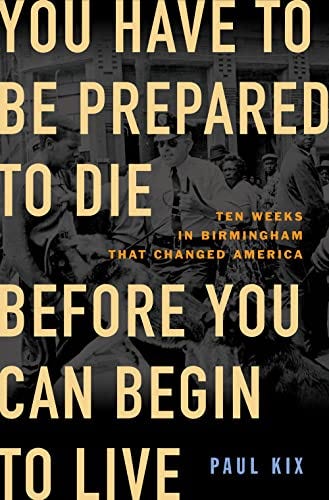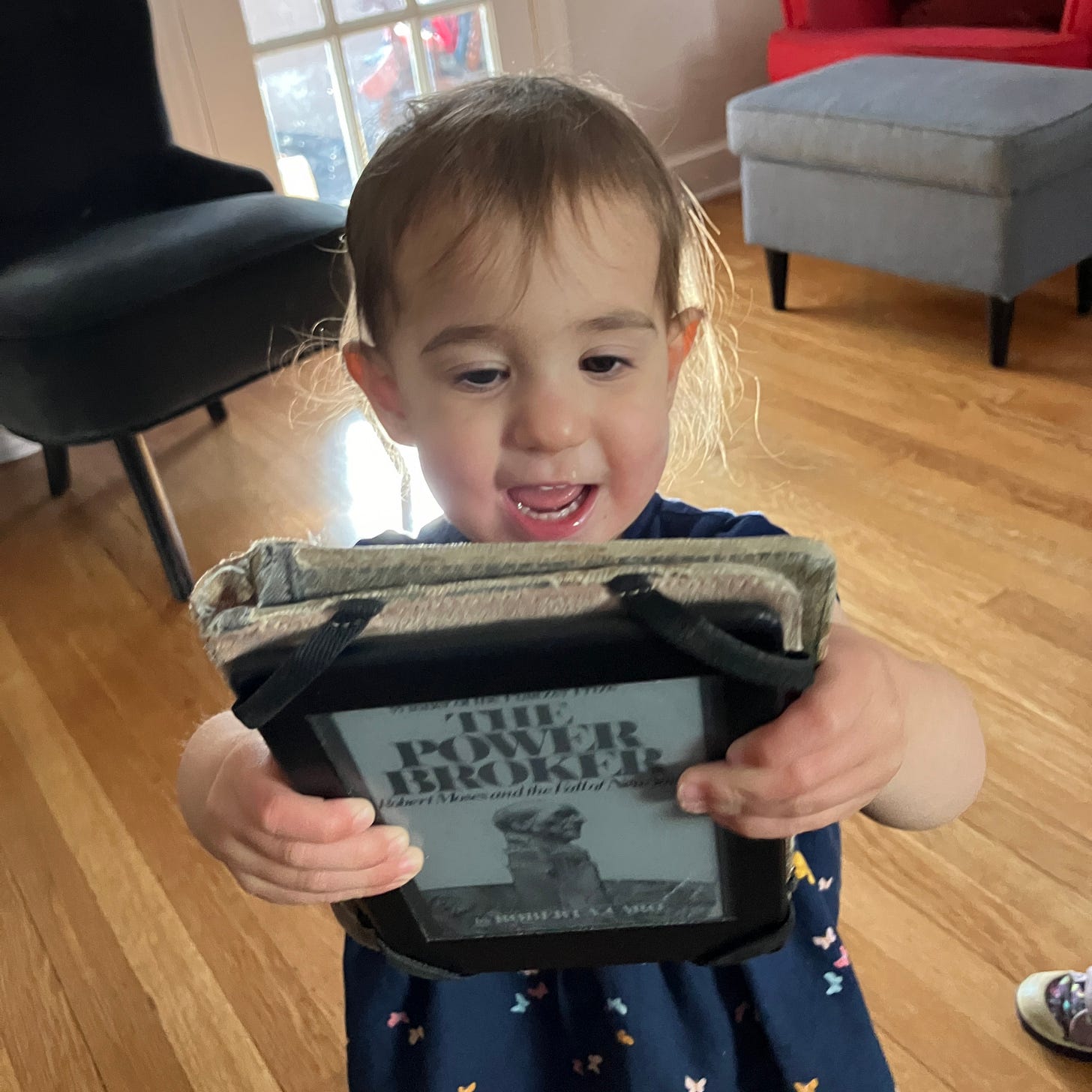Best of the Bookshelf
The best reading of 2023, my hopes and methods for 2024
I’ve put together my list of my favorite books I read this year, and the one I’d particularly highlight for the readers of Other Feminisms is the one that was my favorite overall:
You Have to Be Prepared to Die Before You Can Begin to Live: Ten Weeks in Birmingham That Changed America by Paul Kix
One thing I loved about this book is that reminds you how dense and uncertain history is as it’s happening. In a history survey class, it’s easy to summarize King’s time in Birmingham, as “they marched, they were beaten, they won.”
But as the protests unfolded over ten weeks, no one knew how that sentence would end, and the people of Birmingham were torn about King’s tactics, particularly sending children out alone to face Bull Connor’s violence. (Part of the reason he did is because the adults were more skeptical anything would come of the marches and refused to participate).
The second thing that interested me was the strategic thinking behind Birmingham strategy. For King and his partners, the power of non-violent resistance was limited if their patience wasn’t met by violence.
That was Birmingham. And the city's violence, its hatred, was also its appeal. [Wyatt] Walker told the crowd at Dorchester that the SCLC needed to go to the very site of white terror and anger every terrible person there. In order for its nonviolence to work, the SCLC needed to subject itself to the full wrath of Birmingham, […] SCLC needed to go to Birmingham to turn the city into a metaphor of the Black experience.
The book is marvelous, and was interesting reading alongside today’s nonviolent disruptive action (like Just Stop Oil) which engage in deliberate provokation… than ends with peaceful, gentle arrests.
I have been touched by hubris after reading all the books I put on my list for 2023. Maddened by pride, I’ve added The Power Broker to my 2024 list. The full list is here, but these are the ones that feel most relevant to Other Feminisms:
The Mystery of the Kibbutz: Egalitarian Principles in a Capitalist World by Ran Abramitzky
The Concept of Woman, Volume 3: The Search for Communion of Persons, 1500–2015 by Sr. Prudence Allen
The Human Condition by Hannah Arendt
The Technological Society by Jacques Ellul
Origen’s Revenge: The Greek and Hebrew Roots of Christian Thinking on Male and Female by Brian Patrick Mitchell
Lifesigns: Intimacy, Fecundity, and Ecstasy in Christian Perspective by Henri J. M. Nouwen
The Uncontrollability of the World by Hartmut Rosa
(Ok, so a lot of the list feels Other Feminisms-y to me. Stay tuned.)
I make a to-read list each year, not because I’ve trying to find a way to succeed or fail at something, but because having a list makes it easier for me to prioritize reading good books I already own.
Without the help and formality of my list, my reading is tilted more toward magazine articles, topics discussed on twitter, and my library holds—all heavily skewed toward recent writing. It’s easier for me to set them aside if it’s for something ON THE LIST.
Silas Marner was leant a little urgency as the year came to a close, since it was the last book left on my list. It made it easier to say no to other reading for the sake of a yes I wanted to be able to give to George Elliot.




Well, apparently I need to either subscribe to Deseret or put a Google alert on your columns Leah, because I missed the one about the Goldin book and I would disagree with your conclusion! My experience has been the opposite of yours; I work part time as a civil engineer in a niche and interdisciplinary subspecialty of the field and I feel that I am more valuable to my employer because I'm a specialist, not a generalist, and I'd be very difficult to replace. But I agree with your call for flexibility to share workload across a team, and building redundancy into our group has been a primary focus of my professional life for the past three years. That way, if I leave, or die, or win the lottery, the team that I've contributed to doesn't die with me.
Anyway, to answer one of the questions that you actually asked, I'm looking forward to reading some Elizabeth Goudge in 2024. I've never read anything by her but people I like to read (like Sarah Clarkson and Dixie Dillon Lane) like to read her, so I'm looking foward to getting to know her. I've also put the Goldin book on my list. The book I read in 2023 that I think will stick with me the longest is The Inquisitor's Tale: Or Three Magical Children and Their Holy Dog by Adam Gidwitz. A YA novel told in the style of the Canterbury Tales, it was a wonderful story about faith, friendship, and trust. I still think about it and I finished it months ago.
My most important book of 2023
“Essays on Woman is a compilation of seven self-contained essays presented in various settings by Edith Stein during her years as a Catholic laywoman and academic. Arranged thematically rather than chronologically, they present a synthesis of her teachings on woman s nature, challenges and opportunities, including female education and professional opportunities; spirituality; the church, woman and youth; and woman s value in national life.”